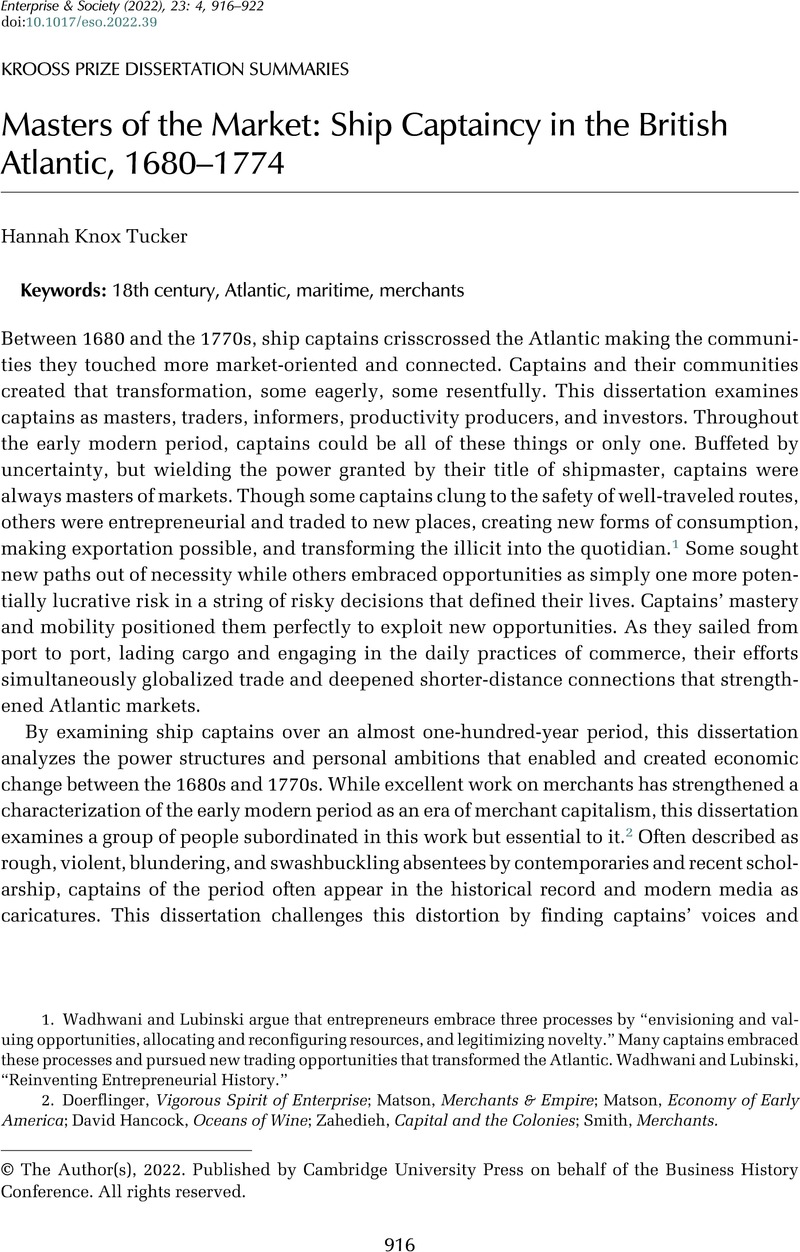Crossref Citations
This article has been cited by the following publications. This list is generated based on data provided by Crossref.
Tinning, Morten
2023.
The Transformation of Maritime Professions.
p.
147.
Tucker, Hannah Knox
2023.
Living Better Together.
p.
215.
Hutková, Karolina
2024.
Review of periodical literature for 2022: (iv) 1700–1850.
The Economic History Review,
Vol. 77,
Issue. 1,
p.
355.
Riddell, Daniel
2025.
Expatriate Merchants and Partnership Formation 1840–1920: Danish Merchants in Newcastle-upon-Tyne.
Enterprise & Society,
Vol. 26,
Issue. 1,
p.
274.



